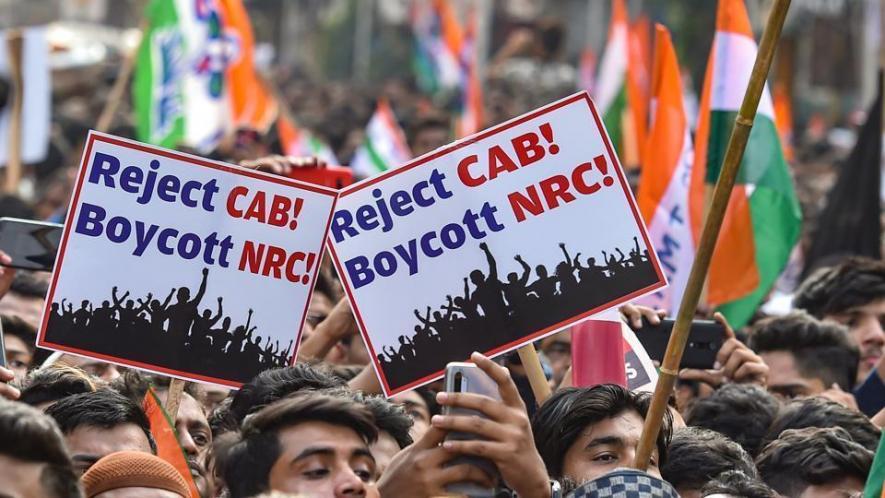SC Asks Centre to Reply by April 2 on 20-Odd Applications Seeking Stay on Recently Notified CAA Rules

Representational Image (File Photo: Courtesy Hindustan Times)
New Delhi: The Supreme Court on Tuesday issued a notice to the Centre asking it to file a response on about 20 applications seeking a stay on the rules notified on March 11, 2024, for the implementation of the controversial Citizenship Amendment Act (CAA), It posted the matter for hearing on April 9.
The apex court bench, headed by Chief Justice of India D Y Chandrachud with Justices J B Pardiwala and Manoj Misra, said: “Let submissions be made on the stay application limited to five pages till April 2. Let respondents file a 5-page reply to the application by April 8," as reported by Bar & Bench.
The bench was hearing a batch of over 230 petitions related to CAA, 2019 and the recently notified implementation rules.
Among the petitioners who filed applications seeking a stay on the rules are the Indian Union Muslim League, the Democratic Youth Federation of India, Asaduddin Owaisi of the All India majlis-e-Ittehadul Muslimeen among others.
Solicitor General Tusahr Mehta, counsel for the Union government, had sought four weeks to file the Centre’s response, said the Bar & Bench report, but it was opposed by senior advocate Kapil Sibal, who was appearing on behalf of the petitioners.
Sibal wanted to know the reason for the “urgency” to notify the rules four years after the Act was passed by Parliament and had received Presidential assent forthwith.
“Four weeks for (reply to) an application of stay is far too much...These rules have been notified after four years. Since 2020 they have been going to Parliament after every three months and now notified. If citizenship is granted now then there are chances that it cannot be reversed. Under international law once citizenship is granted you cannot take it back,” he said.
Senior advocate Indira Jaising, also on behalf of the petitioners, said the government should ensure that it will not grant citizenship under the rules till the matter in pending in court, after which the CJI pointed out that the “infrastructure” for granting citizenship “is not in place.”
The Narendra Modi government’s decision to notify the implementation of CAA in 2019 saw protests across the country as well as widespread crackdown. The notification on rules on March 11 came ahead of the Lok Sabha elections.
Implementing CAA was among the top items on the election manifesto of the ruling Bharatiya Janata Party.
The amended CAA (the original was the Citizenship Act of 1955), offers Indian citizenship to Hindus, Sikhs, Christians, Buddhists, Jains, and Parsis (it excludes Muslims) who migrated from neighbouring Muslim-majority countries, such as Pakistan, Bangladesh, and Afghanistan prior to December 31, 2014.
The protests throughout the country in 2019 were triggered as a large section of the population saw CAA as discriminatory against Muslims and undermining the secular principles enshrined in the Constitution of India by making religion a test of citizenship. Over 100 people are estimated to have died in the protests. Among the longest protests was the one in Shaheen Bagh in the country’s capital city.
Get the latest reports & analysis with people's perspective on Protests, movements & deep analytical videos, discussions of the current affairs in your Telegram app. Subscribe to NewsClick's Telegram channel & get Real-Time updates on stories, as they get published on our website.
























